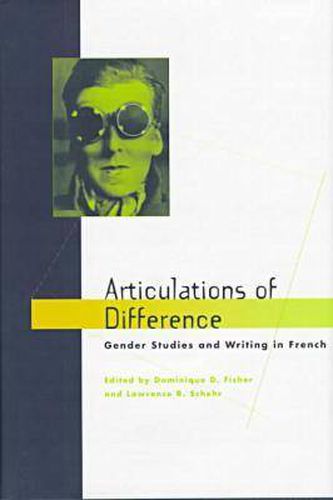Readings Newsletter
Become a Readings Member to make your shopping experience even easier.
Sign in or sign up for free!
You’re not far away from qualifying for FREE standard shipping within Australia
You’ve qualified for FREE standard shipping within Australia
The cart is loading…






This collection of fifteen essays deals with the representations, theories, and problematics of homosexuality in French writing of the nineteenth and twentieth centuries. Though focusing on literature, it also includes other self-conscious writing, such as medical discourse and lexicography. The authors examine how homosexuality is a component in the representation of ideology, desire, and structures in the nineteenth century, and how, in the twentieth century, homosexuality emerges in its own right as a subject for representation and study. Drawn from insights of the past twenty years, the essays reflect the renewed approach of gender and sexuality as they relate to homosexuality and its representation, and they rely on models that differentiate between sexuality and gender and between natural inclinations and social constructs. Despite the wide variety of subjects, critical positions, and authors backgrounds, what these essays have in common is the willingness of the contributors to go beyond a set of rhetorics, a set of limitations that were a defining moment in the struggle of gay liberation, and its reflection in both creative and critical writing.
$9.00 standard shipping within Australia
FREE standard shipping within Australia for orders over $100.00
Express & International shipping calculated at checkout
This collection of fifteen essays deals with the representations, theories, and problematics of homosexuality in French writing of the nineteenth and twentieth centuries. Though focusing on literature, it also includes other self-conscious writing, such as medical discourse and lexicography. The authors examine how homosexuality is a component in the representation of ideology, desire, and structures in the nineteenth century, and how, in the twentieth century, homosexuality emerges in its own right as a subject for representation and study. Drawn from insights of the past twenty years, the essays reflect the renewed approach of gender and sexuality as they relate to homosexuality and its representation, and they rely on models that differentiate between sexuality and gender and between natural inclinations and social constructs. Despite the wide variety of subjects, critical positions, and authors backgrounds, what these essays have in common is the willingness of the contributors to go beyond a set of rhetorics, a set of limitations that were a defining moment in the struggle of gay liberation, and its reflection in both creative and critical writing.